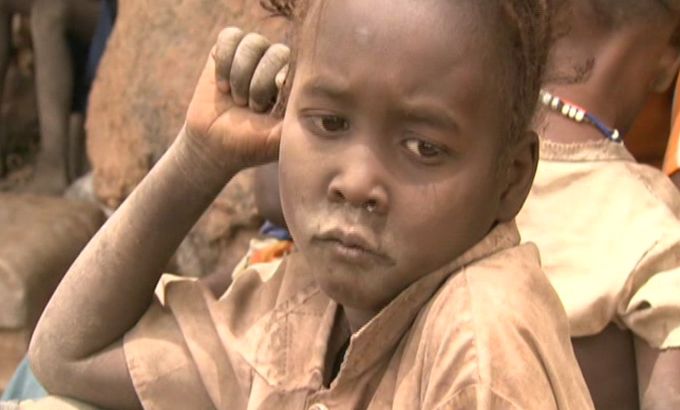Villages razed in Sudan’s South Kordofan
Thousands flee to mountains, fearing Sudanese attacks, as Al Jazeera finds homes burnt down and crops destroyed.

Thousands of people in the Sudanese border region of South Kordofan have fled their homes to the nearby mountains, fearing attacks by Sudanese forces that have left entire villages devastated.
Al Jazeera’s Peter Greste gained access to the remote region and documented evidence of villages and crops destroyed and spoke to people who said they had abandoned their homes out of fear that they would be killed if they stayed.
Sudan’s army has been accused of deliberately targeting civilians in South Kordofan during a months-long military campaign that has included air raids and allegations of soldiers razing villagers.
The government in Khartoum blames separatist fighters of the Sudan People’s Liberation Movement-North (SPLM) for the violence, and says the group is aligned with South Sudan, which achieved independence last year.
|
“What do you expect if the Khartoum government murders, rapes and bombs its civilians? I think it is a right in international law, for a people whose government has betrayed them, to defend themselves“ – Mukesh Kapila, former UN humanitarian co-ordinator for Sudan |
But some South Kordofan residents accuse Sudanese forces of launching an intentional campaign to bomb and starve them, while the United Nations accuse Sudan’s government of blocking food and aid deliveries to the region. Aid groups have also warned of the risk of famine there.
“The only thing I and my children can do is to stay in these caves. If we go out, we’ll be killed,” Halima Kuku, a villager whose family sought shelter in a cave in the Nuba mountains, told Al Jazeera.
“Right now I’m hungry. I have nothing in my stomach and when I see the way my children and I are, it makes me cry,” Awaida Kuwa, another villager, said.
Greste, reporting from South Kordofan, said: “What is concerning is the attempts to drive a lot of the African tribes off their lands and to deprive them of resources.”
In Bram, which used to be an administrative centre of about 5,000 people, Al Jazeera found a ghost town.
“A few months ago, the Sudanese army came through here and all the villagers fled into the mountainside,” Greste reported from the town.
“The army destroyed every building. They set fire to each home. They burned the crops, the grain stores. They destroyed the lot.”
Sudan blames SPLM
Speaking to Al Jazeera on Sunday, Rabie Abdul Atti, an adviser to Sudan’s information minister, denied reports that the army was attacking the region.
“What is now running in southern Kordofan is actually an attack by the SPLM and now we are [retaliating by] killing the forces of the SPLM,” he said.
 |
“This is actually our jurisdiction – our area – and I don’t think our government is doing such things. The attacks are by the SPLM and the atrocities are committed by them. These accusations and allegations should be directed to them,” Abdul Atti said.
Fighting between Sudan’s armed forces and the Sudan People’s Liberation Movement-North began in South Kordofan last June.
SPLM is one of a number of rebel movements in the volatile border area between Sudan and South Sudan who say they are fighting to overthrow Sudanese President Omar Hassan al-Bashir.
“Of course there is a confrontation between the SPLM and the Sudanese government,” Mukesh Kapila, the former UN humanitarian co-ordinator for Sudan told Al Jazeera on Sunday.
“What do you expect if the Khartoum government murders, rapes and bombs its civilians? Then do you expect the people of the region to take it and enjoy it themselves?
“I think it is a right in international law, for a people whose government has betrayed them, to defend themselves,” he said.
Kapila said he saw evidence of genocide and crimes against humanity on a trip to the area this month. He said the Khartoum government had “no right to be attacking women and children indiscriminately” and called for further investigation into what was taking place there.
“There seems to be a growing body of international pressure on the Sudanese government,” Al Jazeera’s Greste said.
“They still need to give way to allow a lot of the aid agencies to bring desperately needed food and medical supplies into this region. We saw people up in the hills who are absolutely starving.”
Sudan has given only limited access to the UN and foreign aid agencies since the fighting started, prompting the US and activists to warn of a looming famine.
The UN estimates that about 300,000 people in the region might starve if they do not get help. It also says more than 400,000 people have been displaced by the ongoing violence.
“Until there is significant political changes and concessions it’s very difficult to see how any aid agencies can do the job that they need to do here,” Greste said.